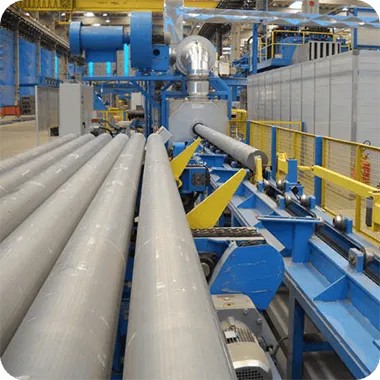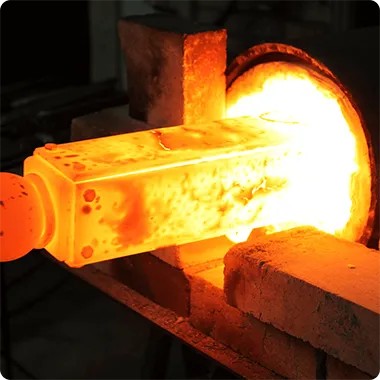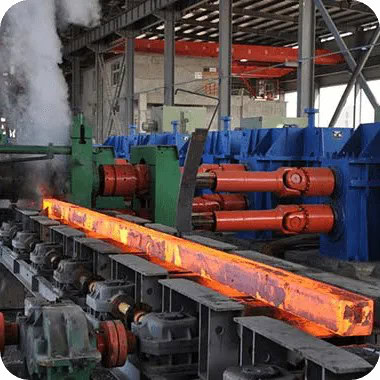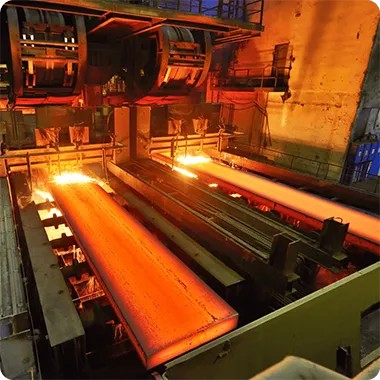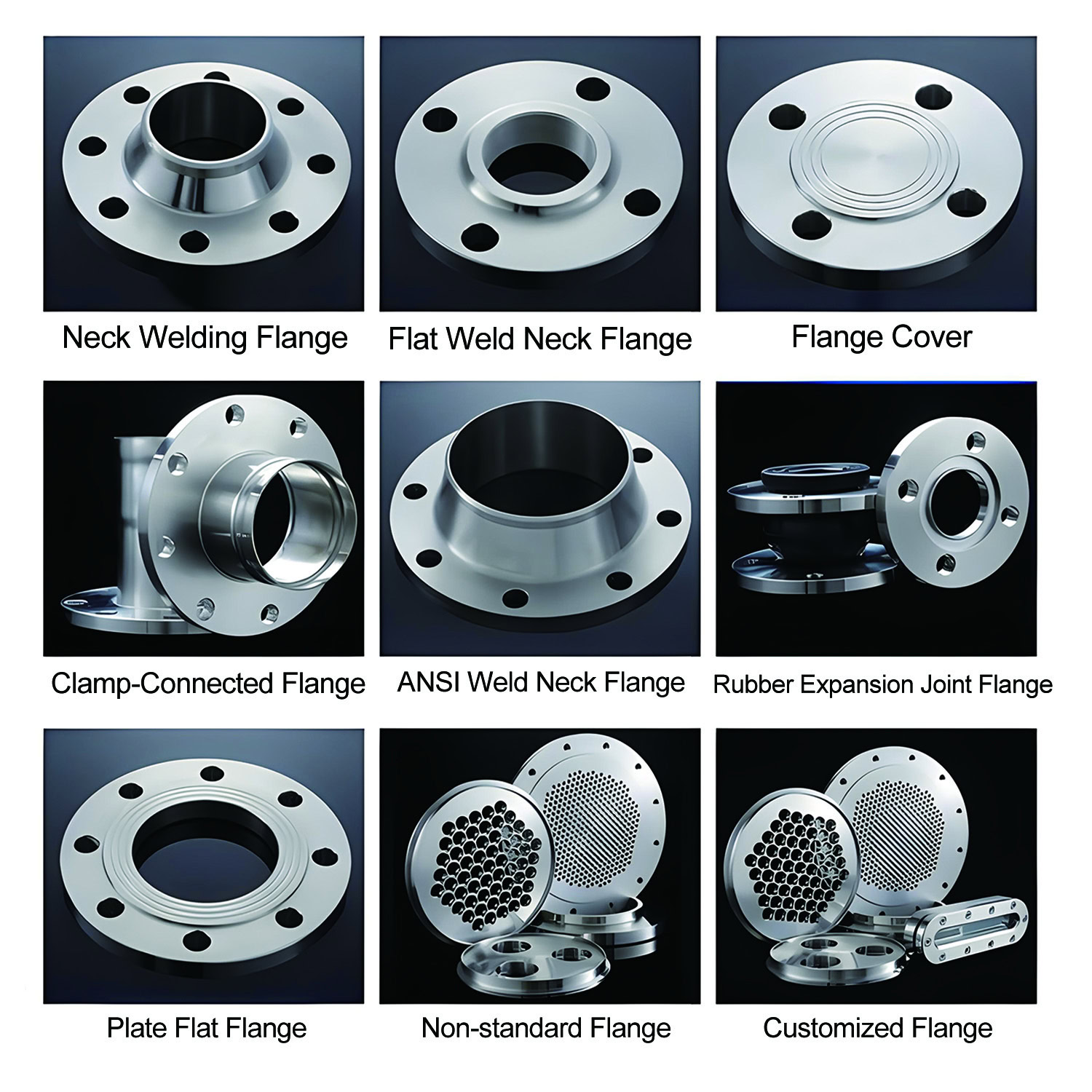Custom Titanium Flange Manufacturing Services in China
As a pipe connection part, titanium flange is widely used in chemical, petroleum, marine engineering, aerospace, medicine and food fields due to its excellent corrosion resistance, high strength-to-weight ratio, biocompatibility, stability in extreme environments and diverse structural forms.
- Grade 1 Titanium Flange
- Grade 2 Titanium Flange
- Grade 5 Titanium Flange
- Grade 7 Titanium Flange
- PN2.5、PN6、PN10、PN16
- PN25、PN40、PN63、PN100
- Class150、Class300、Class600
- Class900、Class1500、Class2500
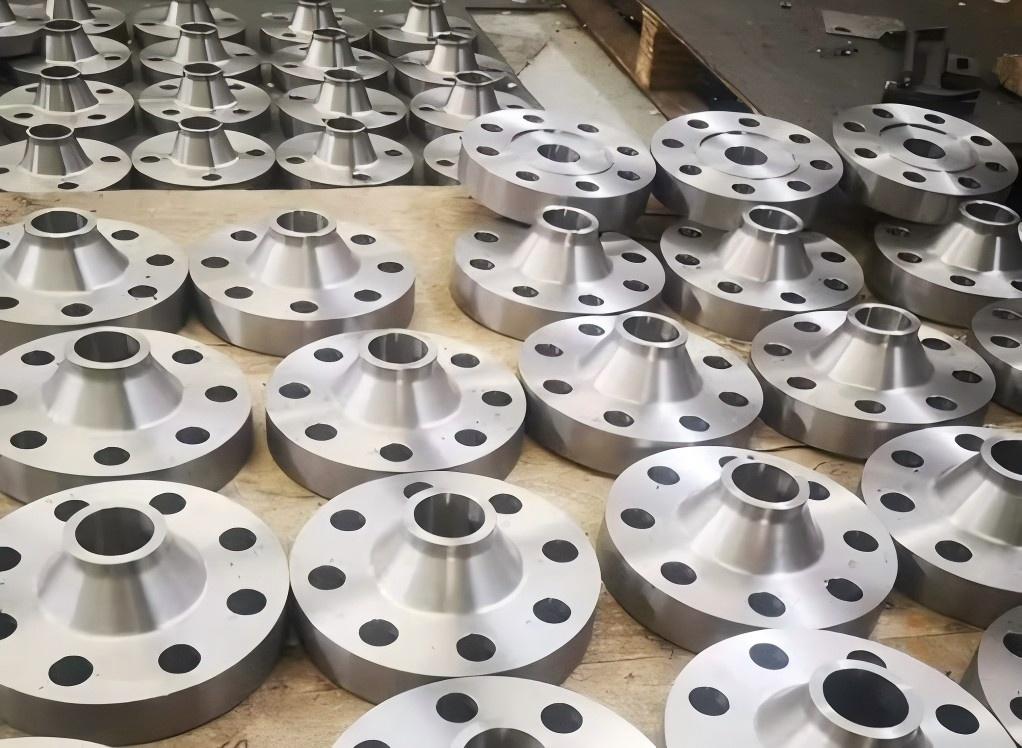
Reputable Titanium Flange Manufacturer & Supplier - Wstitanium
As a high-performance pipe connector, titanium flange plays an indispensable role in many fields such as aerospace, petrochemical, marine engineering, power, and medical due to its excellent characteristics in corrosion resistance, high strength, low density, high temperature resistance, low temperature performance, and biocompatibility. Wstitanium is a titanium flange manufacturer and supplier in China. With its advanced technology, strict quality control and rich experience, it has established an excellent reputation in the market. Next, let us understand the key links of Wstitanium’s titanium flange manufacturing, from materials, manufacturing technology, custom specifications, quality control, to present you with comprehensive and in-depth information, so that you can better understand and choose Wstitanium’s titanium flange products.
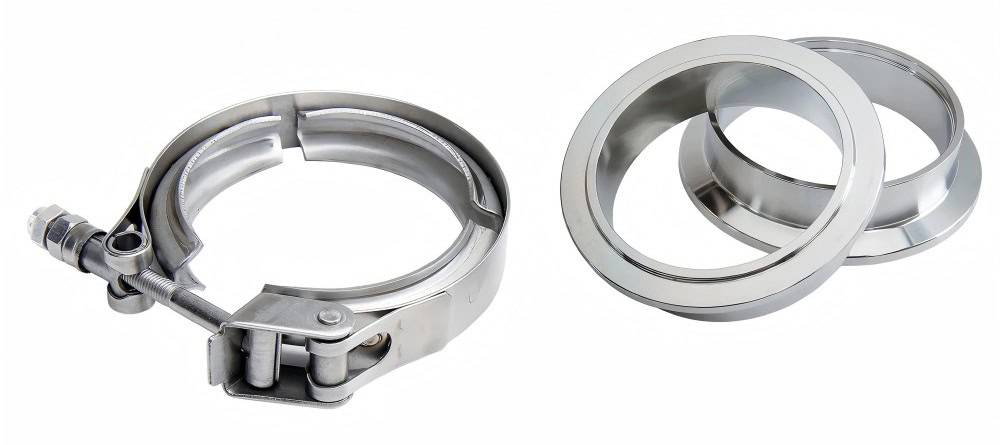
Titanium Clamp Flange
Titanium clamp flanges are suitable for biopharmaceutical CIP/SIP systems and semiconductor wet process pipelines. The clamps are easy to disassemble and maintain, and the seals can be replaced in time.
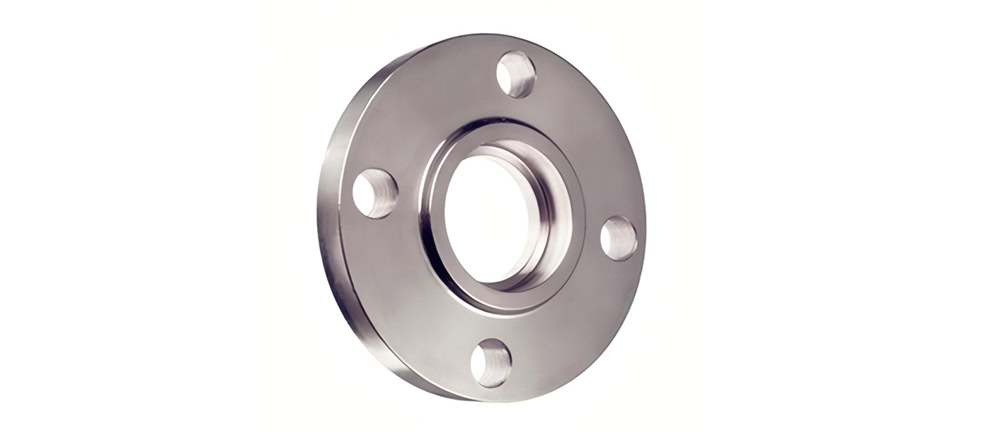
Socket welding flanges are small-diameter pipes inserted into flange sockets for welding. They have good sealing properties and are suitable for high-pressure small-diameter pipelines, such as aviation hydraulic oil lines.
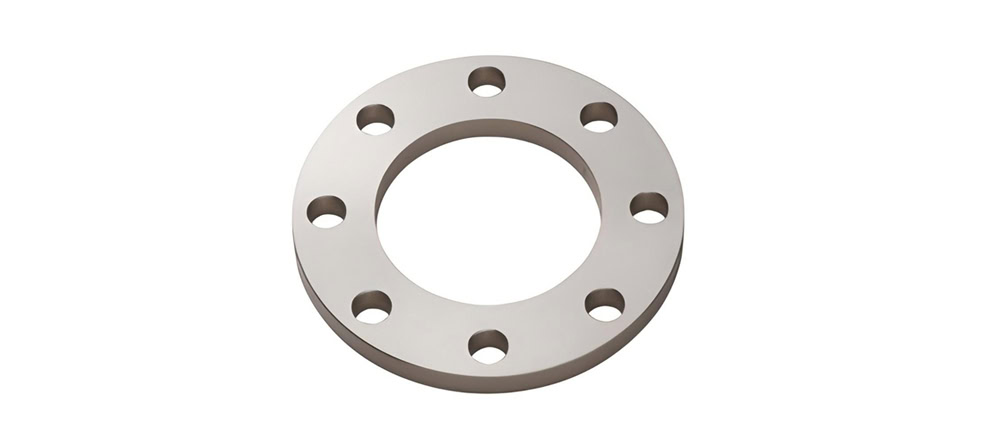
Titanium Plate Slip-on Flange has a simple structure and low cost. It is suitable for low-pressure systems ≤1.6MPa, such as ventilation and cooling water pipes. It can be anodized or sprayed to enhance weather resistance.
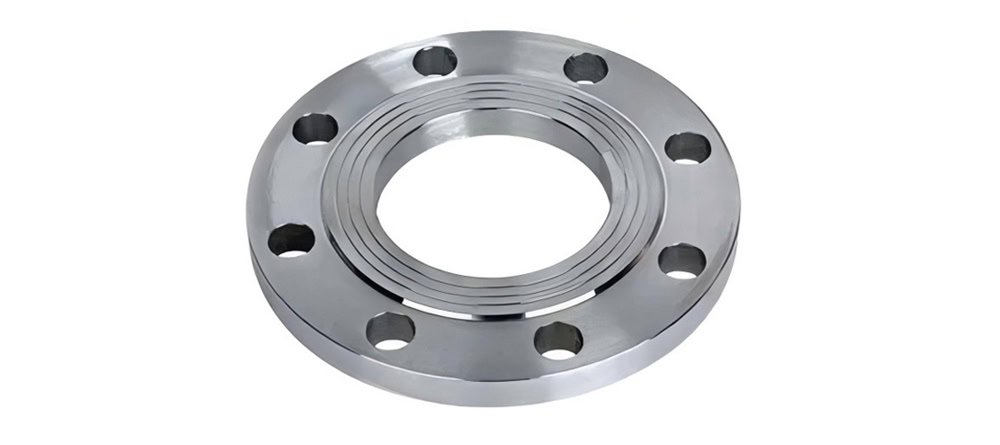
Titanium slip-on-flanges
Titanium Slip-on Flange achieves quick connection by directly inserting the pipe into the inner hole of the flange and welding it. It is low-cost and suitable for medium and low pressure (≤10MPa) and large diameter (DN≥50mm) pipeline systems.
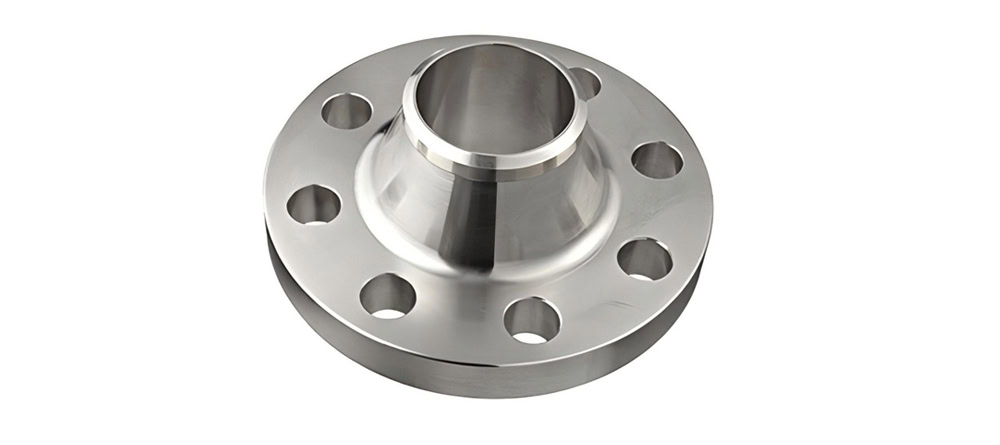
The long neck of the titanium Neck Slip-on Flange is welded to the pipe, which significantly improves the mechanical properties. The long neck design reduces stress concentration and is suitable for connections with frequent vibrations, such as pumps and compressors.
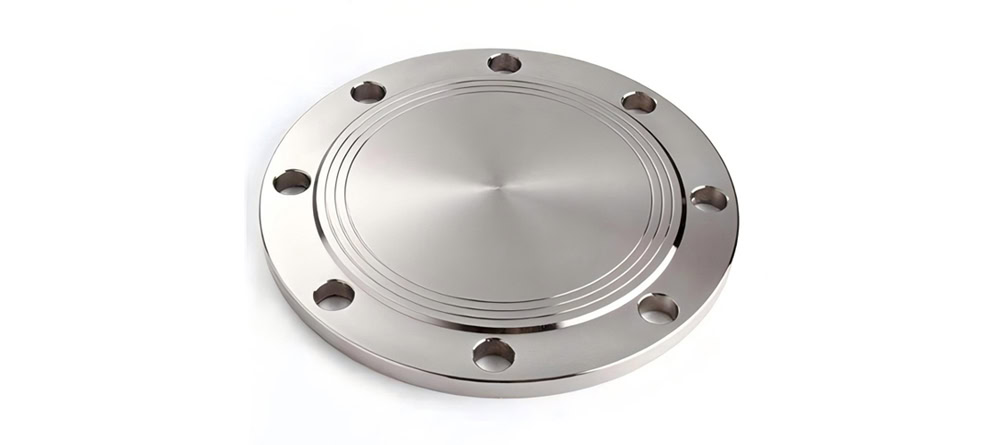
Titanium Blind Flange is used to seal the end of the pipeline. Titanium can resist long-term erosion by corrosive media. Typical applications: chemical pipeline blind end plugging, LNG cryogenic storage tank interface, offshore platform vent pipe head.
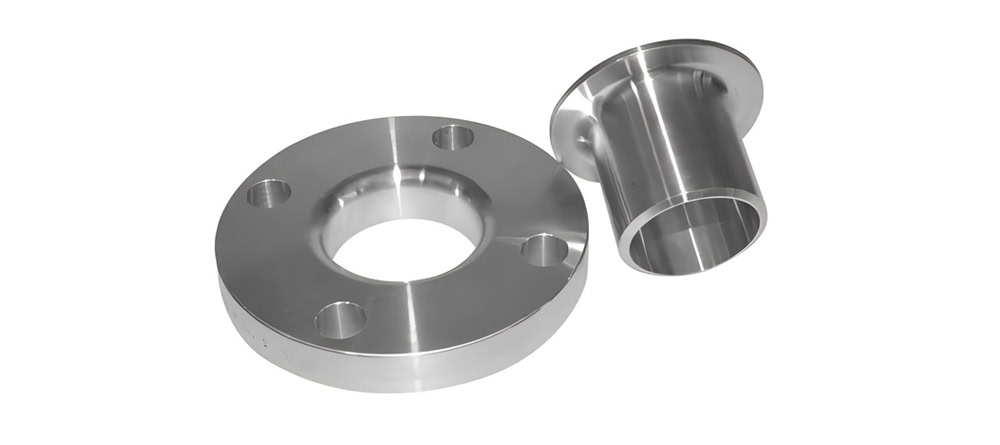
Titanium Lapped Joint Flange achieves non-direct welding connection through a lap ring and a flange structure. It allows thermal expansion or mechanical displacement of the pipeline, reduces stress transfer, and is suitable for scenes with large temperature fluctuations.
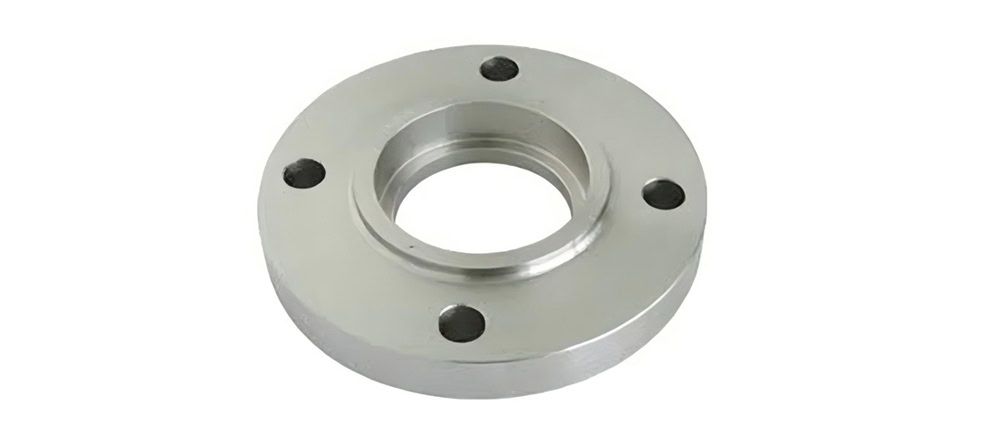
Socket Weld Flange is designed for small-diameter pipelines. The pipeline is inserted into the socket of the flange and then welded and fixed. It is suitable for the connection of small-diameter pipelines in the fields of fine chemicals, instrument pipelines, etc.
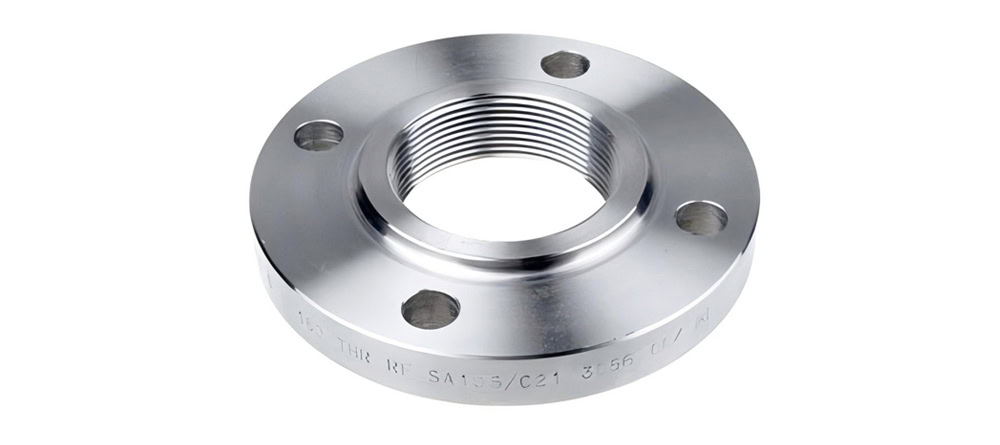
The characteristic of threaded titanium flange is that its inner diameter has threads, and it is connected to the pipeline by threads without welding. Threaded connection may be loose and leaking in high temperature, high pressure and high vibration environment.
Advantages of Titanium Flanges
- High strength-to-weight ratio
Titanium has a relatively low density of about 4.51g/cm³, which is only about 60% of steel, but its strength is even comparable to that of high-strength steel, with an excellent strength-to-weight ratio.
- Corrosion resistance
Titanium exhibits excellent corrosion resistance in many media. A dense, highly adhesive oxide film quickly forms on its surface, effectively preventing further corrosion.
- High temperature performance
Titanium and titanium alloy flanges can still maintain good mechanical properties and creep resistance in high temperature environments, ensuring the reliability of the pipeline system.
Titanium Grade For Flange
Titanium flanges of different grades have different performance advantages due to their unique chemical composition and organizational structure, and are suitable for a variety of industrial scenarios. Industrial pure titanium grades such as Gr1 and Gr2 play an important role in chemical equipment, seawater desalination and other fields with their good plasticity and corrosion resistance. Titanium alloy grades such as Gr5 have become key materials in high-end fields such as aerospace and biomedicine with their high tensile strength and excellent comprehensive performance. When selecting titanium flange grades, it is necessary to comprehensively consider corrosion resistance, strength, weight, formability, cost, and the temperature of the working environment to ensure that the selected grade is accurately matched with the specific application requirements to achieve the best performance and economic benefits.
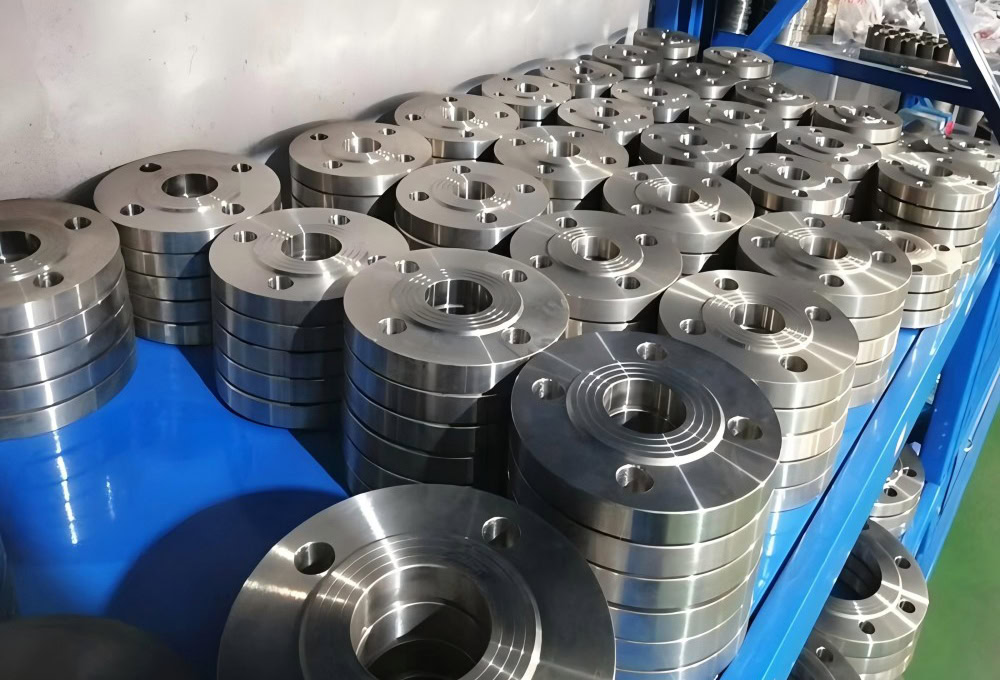
- Gr1
Industrial pure titanium has good formability and weldability, but relatively low strength. In acid and alkali solution delivery pipelines, Gr1 titanium flanges can meet the requirements with good corrosion resistance and low manufacturing cost.
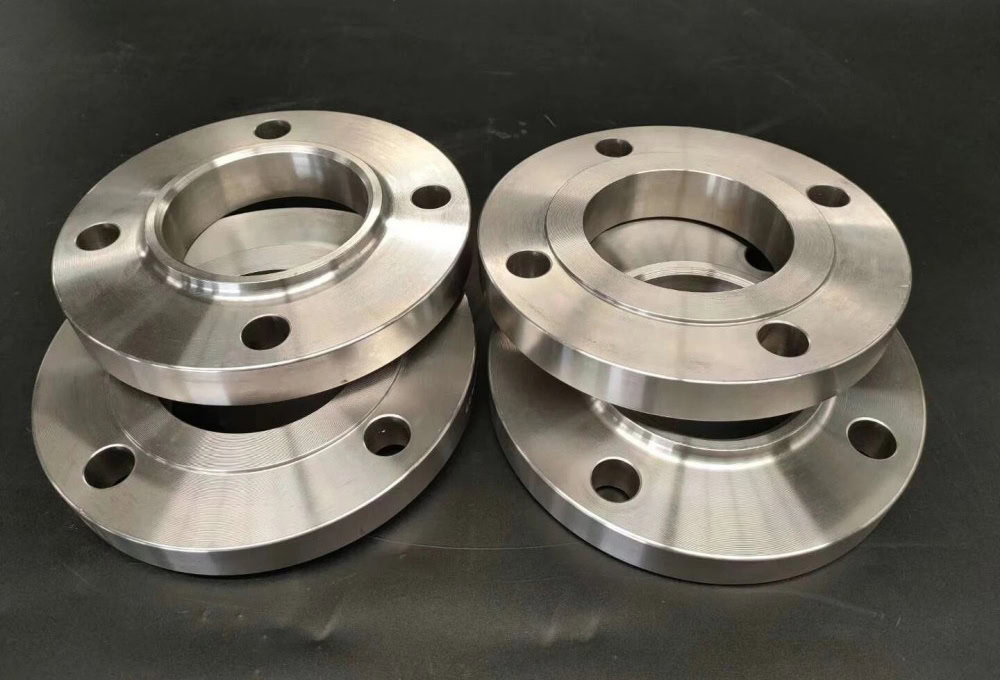
- Gr2
Industrial pure titanium has slightly higher strength and hardness than Gr1. Often used in pipeline systems in the food industry, Gr2 titanium flanges can not only meet food hygiene and safety requirements, but also resist a certain degree of corrosion.
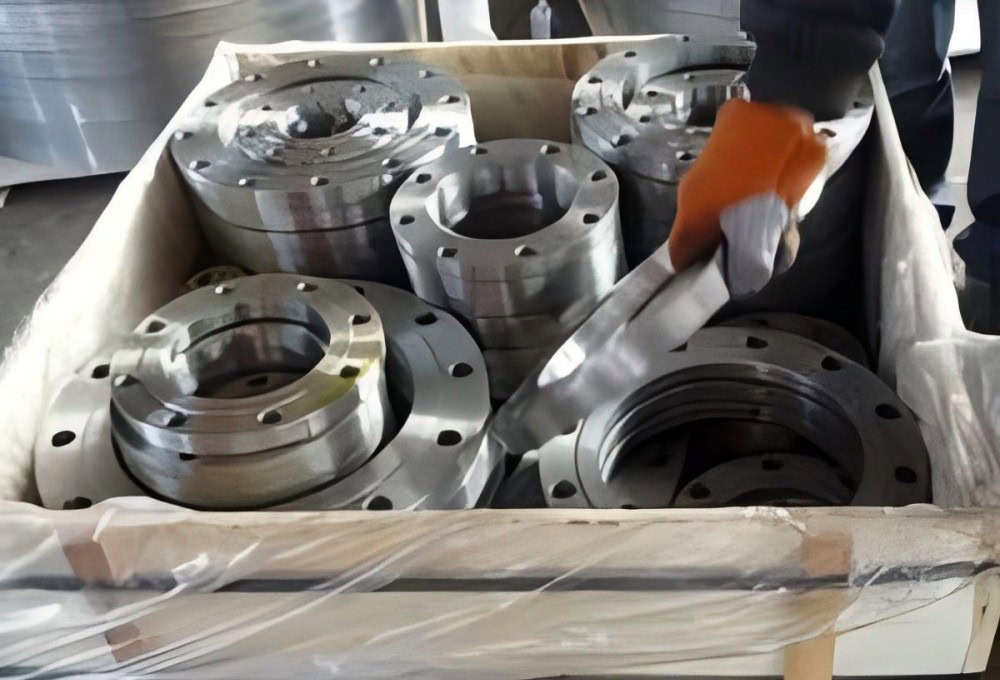
- Gr3
Higher strength than Gr1 and Gr2, while maintaining good corrosion resistance. Suitable for the connection of some non-critical structural parts in the aerospace field, as well as pipeline systems on offshore platforms that require a certain strength support.
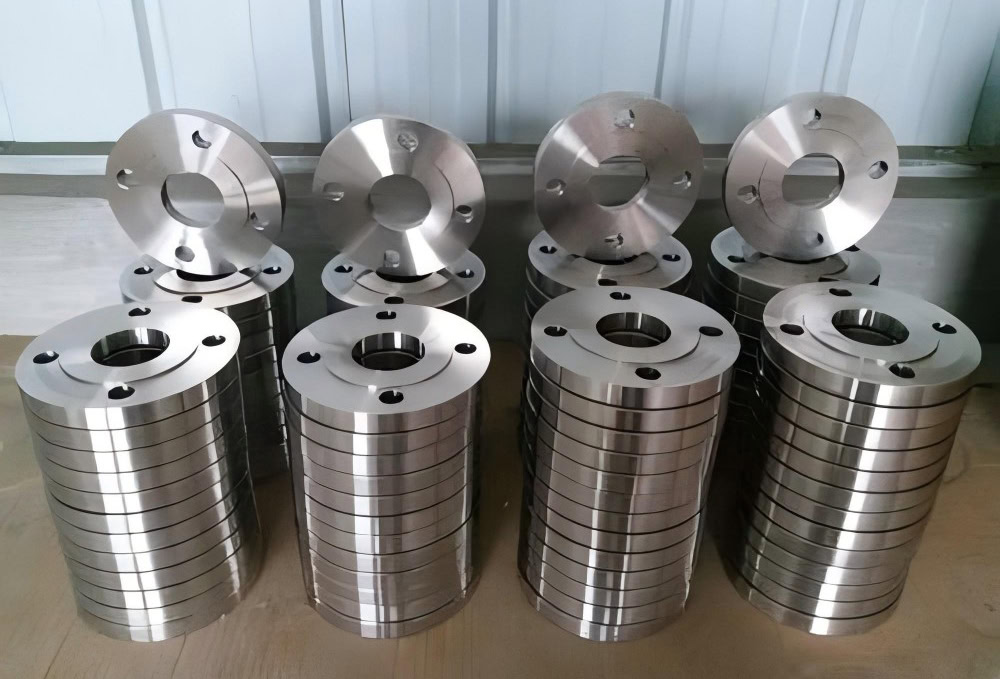
- Gr5
Contains 6% aluminum and 4% vanadium. It has high strength, good toughness and fatigue resistance, and also performs well in high temperature and corrosive environments. Widely used in aerospace, marine engineering, chemical industry and other fields.
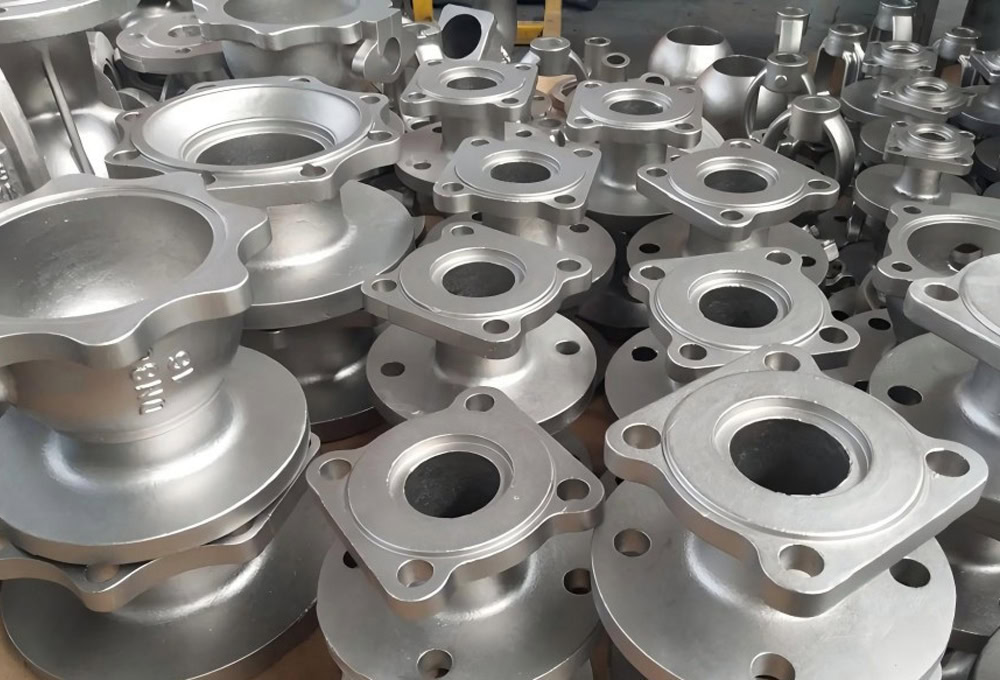
- Gr6
Good high temperature stability and creep resistance. It is mostly used for connecting high temperature parts inside aircraft engines, as well as high temperature chemical pipeline systems, and can work stably for a long time in high temperature environments.
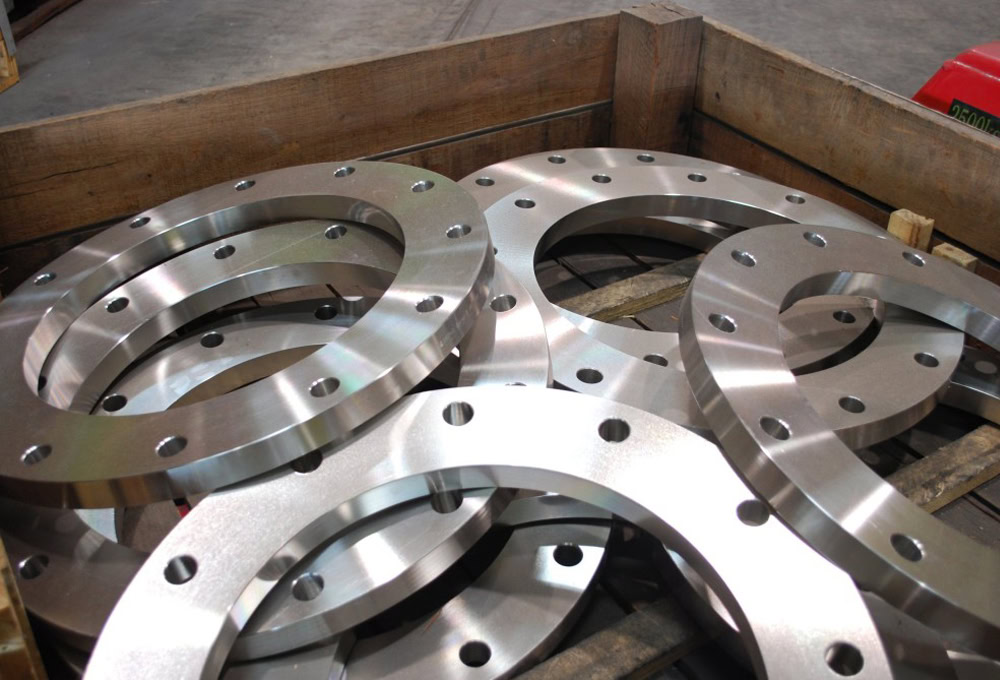
- Gr7
Adding palladium elements, it has excellent corrosion resistance in hydrochloric acid and sulfuric acid environments. It is often used in flange connections of chemical reactors and storage containers that handle these highly corrosive acids.
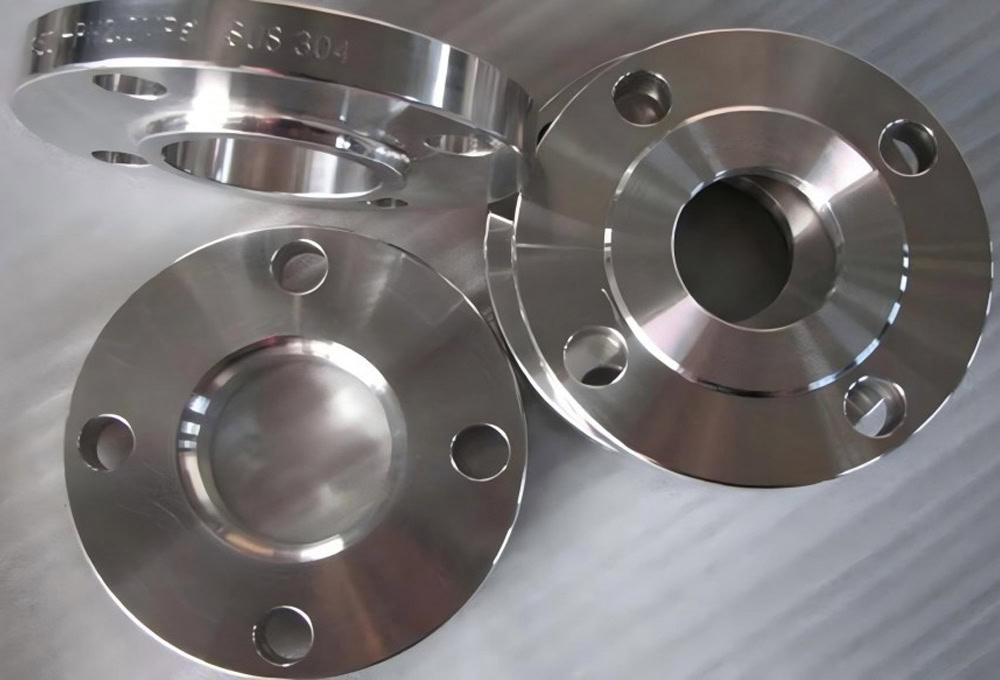
- Gr9
It has medium strength, good corrosion resistance, and good cold forming performance. In the aerospace and petrochemical industries, it is used to manufacture pipeline connection flanges that have weight requirements and need to withstand medium loads.
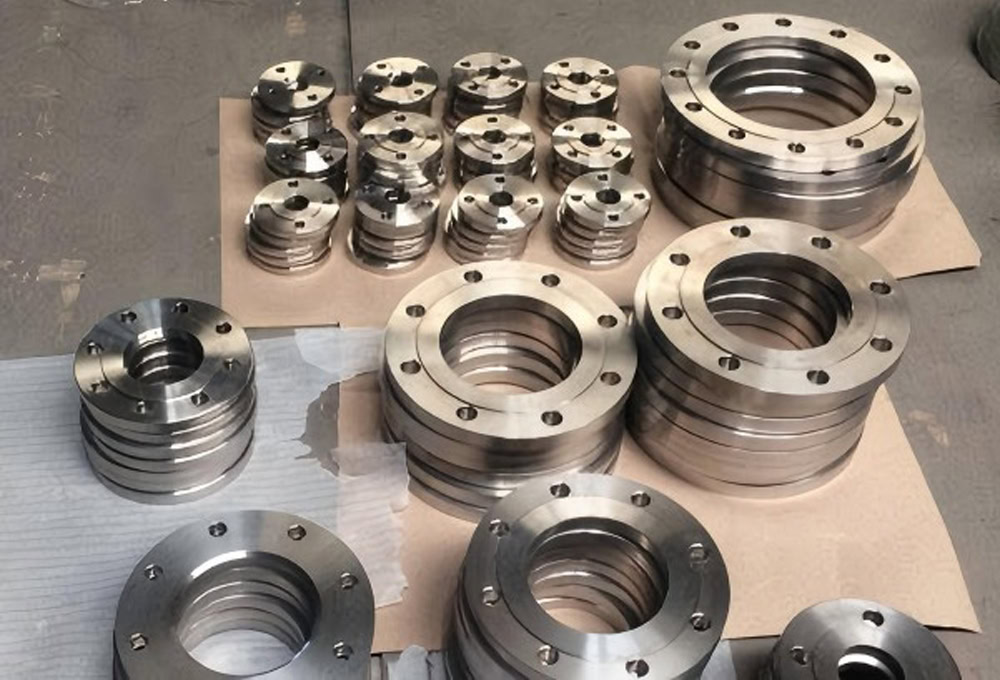
- Gr12
Grade 12 titanium flanges can work stably in environments with high temperature, high pressure and corrosive media such as hydrogen and hydrogen sulfide. Its good comprehensive performance makes it an ideal choice in the chemical industry.
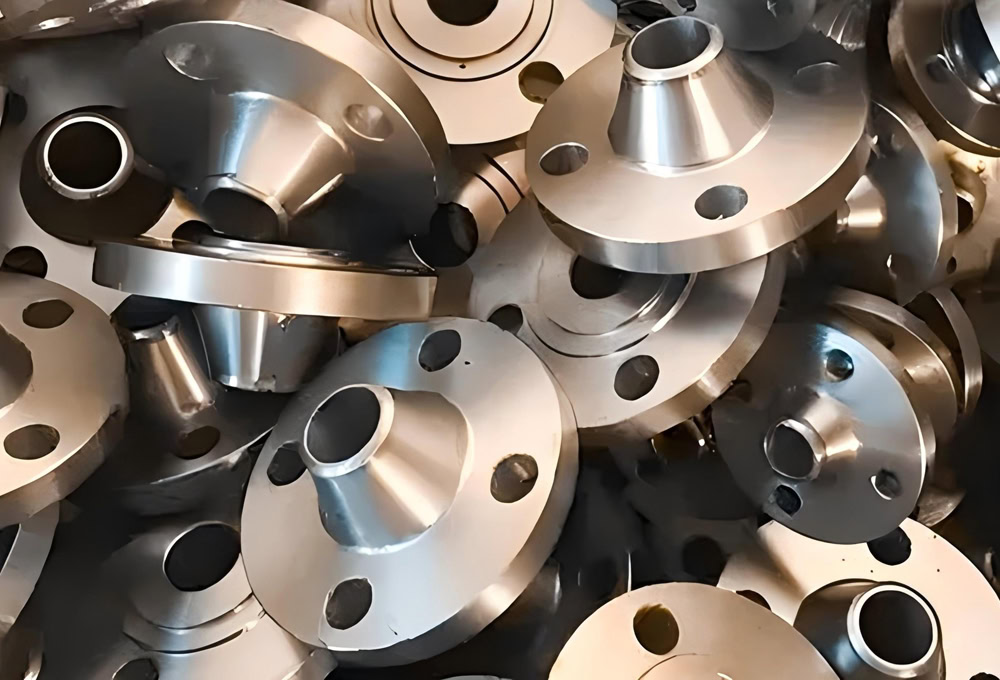
- Gr23
Good biocompatibility and excellent low-temperature performance. It is often used in the medical field (such as artificial joints, dental implant connection parts), and in the connection of parts that require low-temperature performance in aerospace.
Wstitanium Manufacturing Titanium Flange
Since its establishment in 2011, Wstitanium has become a trusted titanium flange manufacturer and supplier with its in-depth understanding and mastery of more than 80 titanium grades, advanced manufacturing technology (forging, casting, CNC machining, heat treatment) and strict quality control system.

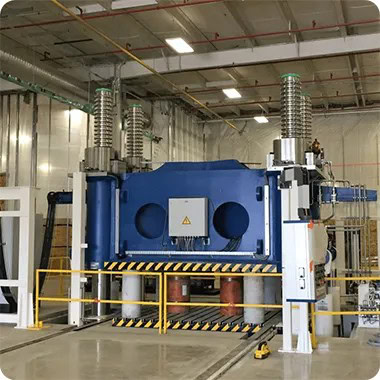
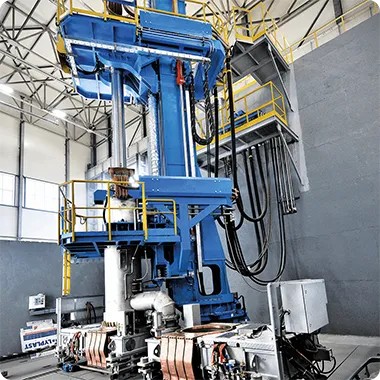
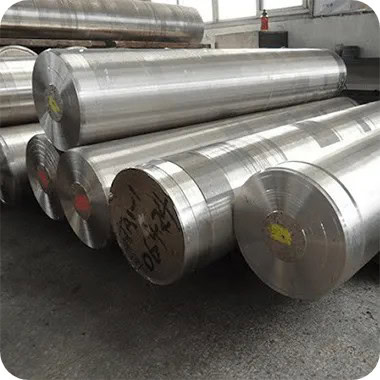
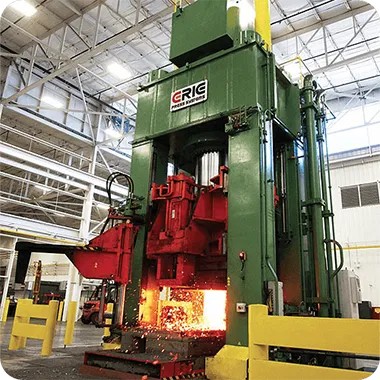
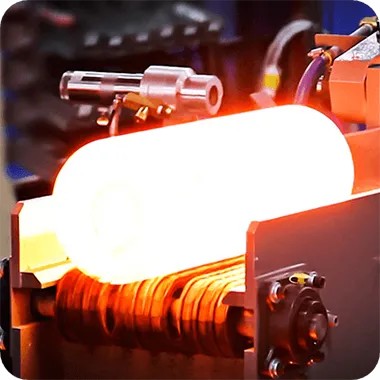
Custom Manufacturing Titanium Flange Specifications
| Standard | ASTM / ASME B381 / SB381/DIN/GB/ISO/JIS/BA/ANSI |
| Grade | Gr1, Gr2, Gr3, Gr4 |
| Gr5 (Ti-6Al-4V), Gr7 (Ti-0.2Pd),Gr9 (Ti-3Al-2.5V),Gr9 (Ti-3Al-2.5V),Gr9 (Ti-3Al-2.5V),Gr12 (Ti-0.3Mo-0.8Ni),Gr23 (Ti-6Al-4V ELI) | |
| Flange Size | 1/2″ (15 NB) to 48″ (1200NB) |
| Class / Pressure: | 150#, 300#, 600#, 900#, 1500#, 2500#, PN6, PN10, PN16, PN25, PN40, PN64 etc. |
| Size Scope | Bolt Size: M1.6~22 Length |
| Nut Size: M3~30 | |
| Washer Size: M3~30 | |
| Flange Size: DN10~1000/1/2″-80″ | |
| Technical | Forging, Cutting rolling, and CNC machining |
| Surface Treatment | Transparent oil, Rust-proof oil, Hot galvanizing, Polishing, Burned |
| Flange Form | Slip On Flanges, Socket Weld Flanges, Forged Flanges, Blind Flanges, Welding Neck Flanges, Ring Type Joint Flange, Spectacle Blind Flanges, Reducing Flanges, Threaded / Screwed Flanges, Tongue and Groove Flanges, Long Weld Neck Flanges, Plate Flanges. |
| Application | Metallurgy, electronics, medical, chemical, petroleum, pharmaceutical, aerospace, etc. |
CNC Machining Titanium Flange
As a high-precision and high-efficiency processing method, CNC machining provides strong support for the manufacture of titanium flanges and can meet various complex shapes and high-precision requirements. CNC technology includes turning, milling, drilling, grinding, etc.

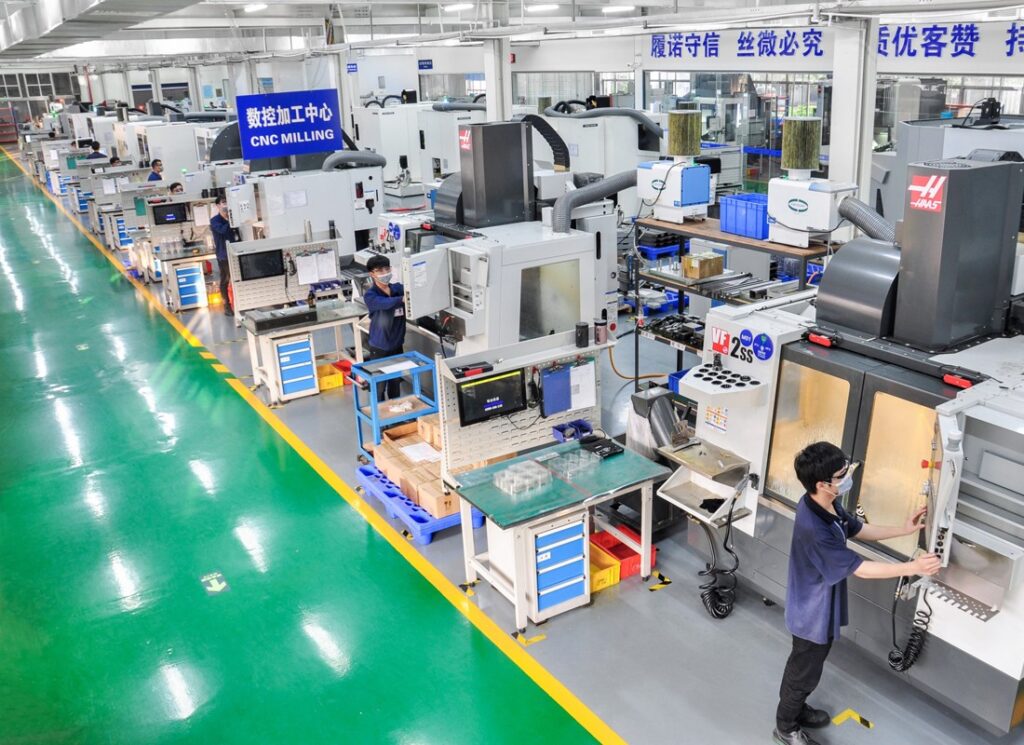

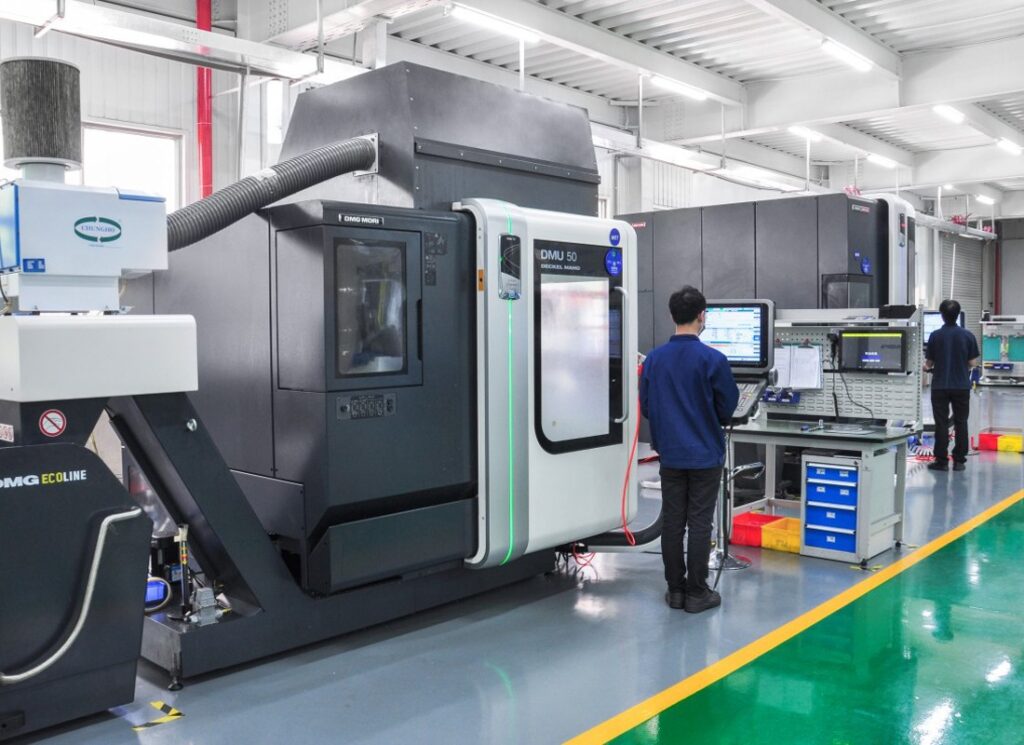
CNC turning is the main process for processing the outer circle, inner hole, end face, etc. of titanium flanges. Through the rotation of the lathe and the feed movement of the tool, the excess material is removed so that the size of the titanium flange meets the design requirements.
CNC milling is used to process the plane, groove, keyway and other features of titanium flanges. The material is removed by the relative movement of the rotating tool and the workpiece of the milling machine. Pay attention to the selection of tools and the optimization of cutting parameters.
CNC drilling is the process of making bolt holes or other connecting holes on titanium flanges. According to the size and accuracy requirements of the hole, select the appropriate drill bit and drilling equipment for processing. Such as high-speed drilling, deep hole drilling, etc.
CNC grinding is a process for finishing the surface of titanium flanges to improve surface finish and dimensional accuracy. CNC grinding removes tiny dimensional errors and brings its surface quality to a higher standard.
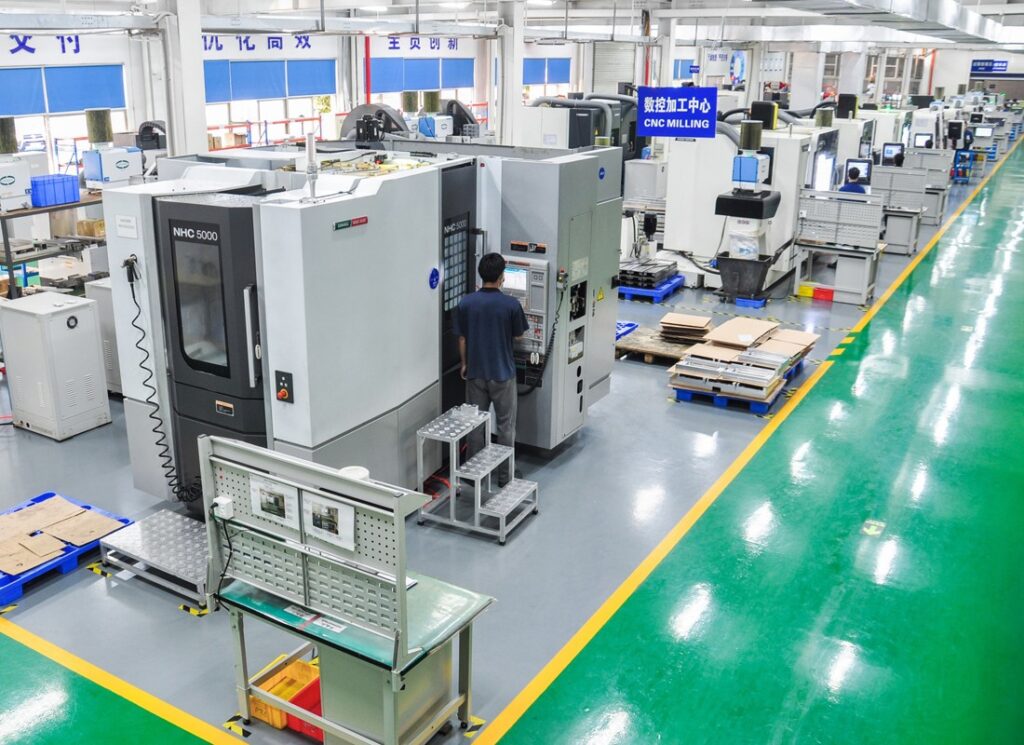
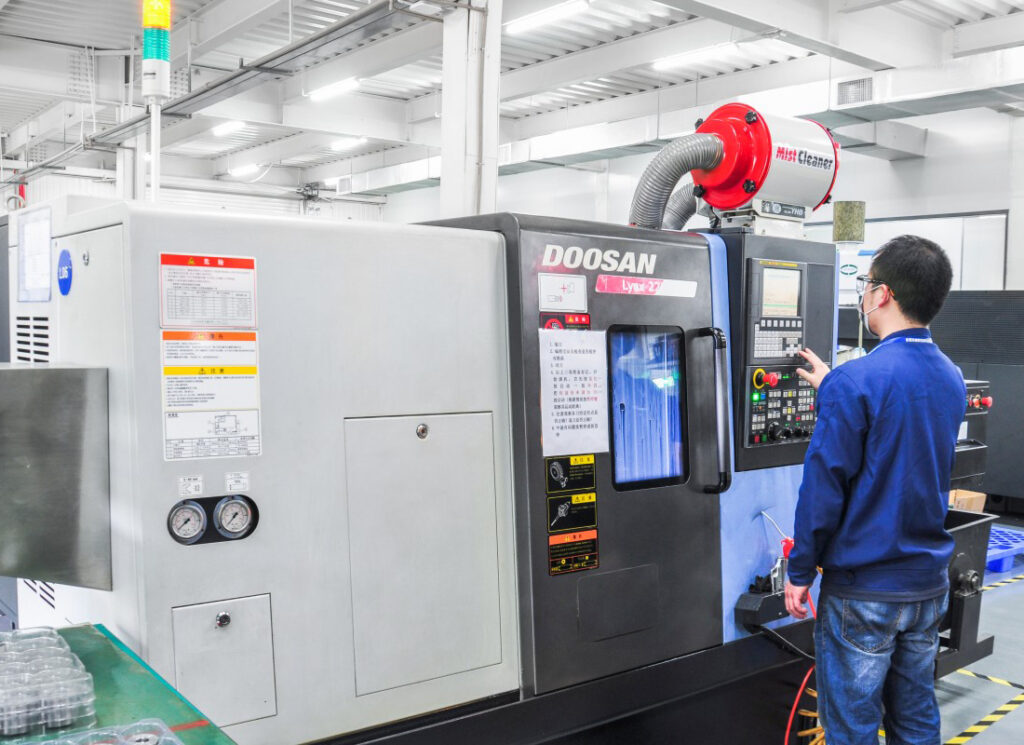
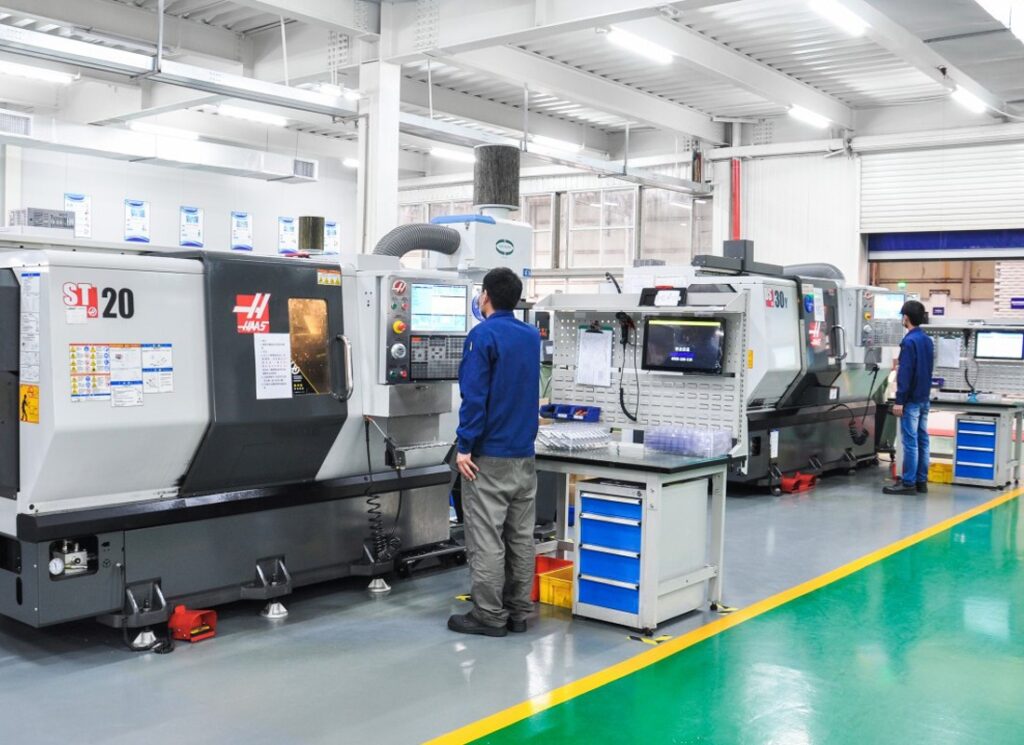
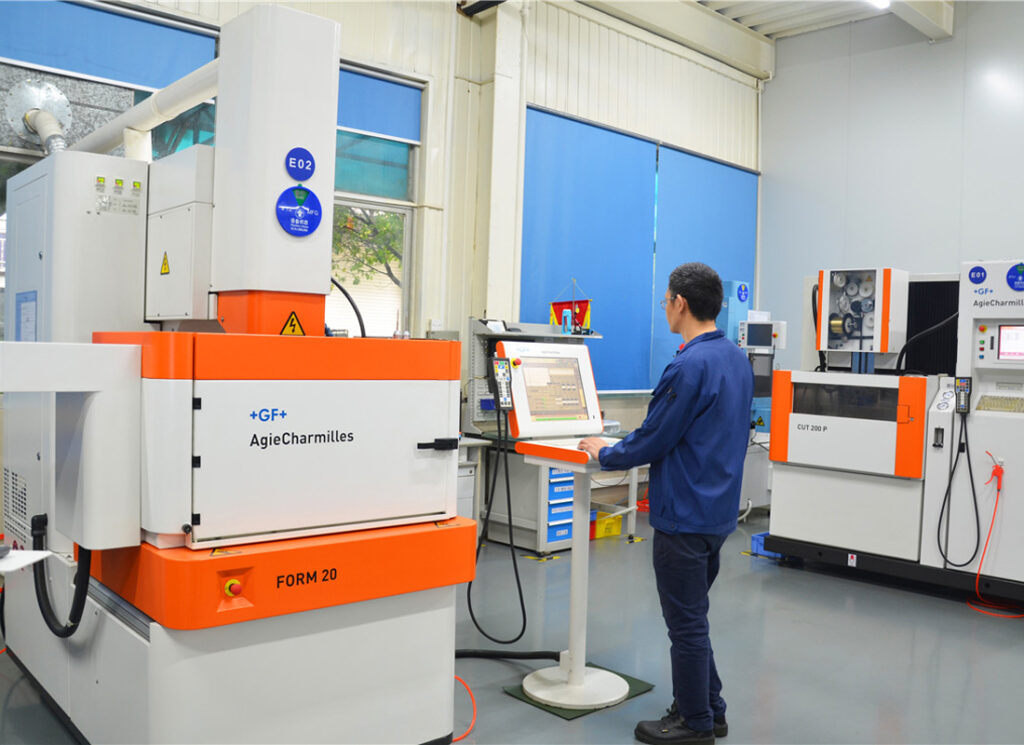
Forging is one of the commonly used processes in the manufacture of titanium flanges. Through forging, the organizational structure of titanium alloy can be improved, and its strength and density can be increased. Forging methods can be divided into free forging and die forging. Free forging is suitable for the production of small batches of titanium flanges with simple shapes. Die forging is suitable for the production of large batches of titanium flanges with complex shapes. Through the constraint of the mold, the blank is accurately formed into the shape and size set by the mold during the forging process, but the manufacturing and maintenance costs of the mold are high.
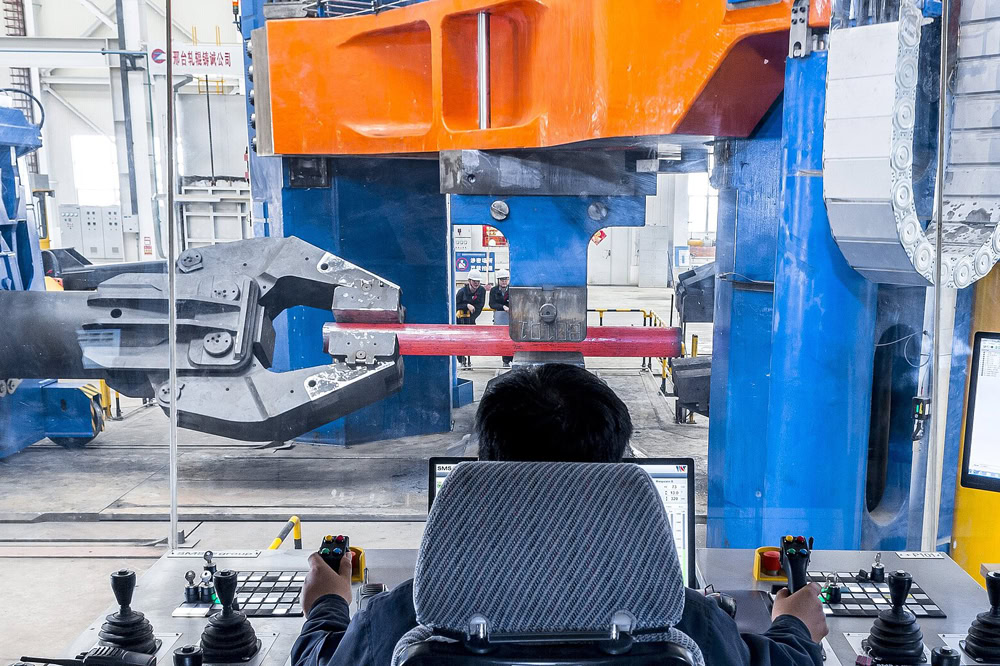
Casting is also a method of manufacturing titanium flanges, especially for manufacturing flanges with complex shapes. The casting process is to melt the titanium alloy into a liquid state, and then inject it into a pre-made mold cavity, and form the shape of the titanium flange after cooling and solidification. The casting process can be divided into sand casting, investment casting, centrifugal casting and other types.
Sand casting has relatively low precision and poor surface quality. Defects such as pores and sand holes may occur, which need to be processed in subsequent processing.
Investment casting, also known as lost wax casting, is suitable for manufacturing titanium flanges with complex shapes and high dimensional accuracy requirements, such as the connecting flanges of some key components in the aerospace field. However, the process of investment casting is relatively complicated and the cost is relatively high.
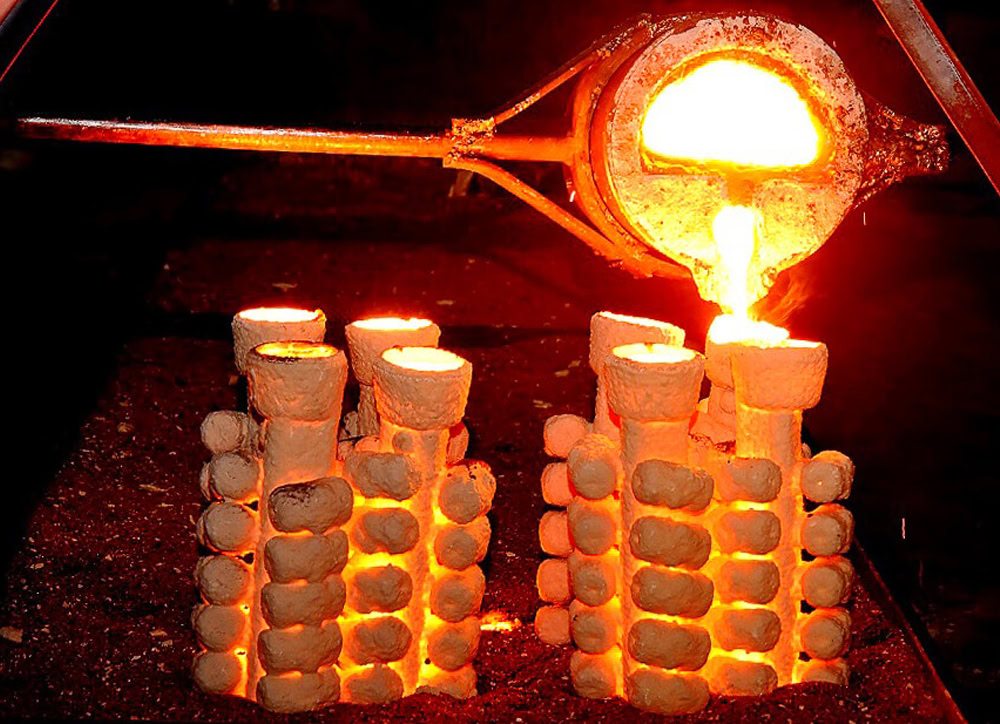
Heat treatment is an important process to improve the performance of titanium flanges. Appropriate heat treatment processes are used to eliminate the internal stress generated during forging or casting, and improve the processing performance and corrosion resistance of the material. Common heat treatment processes include annealing, normalizing, quenching and tempering.
Annealing is the process of heating the titanium flange to a certain temperature, keeping it warm for a period of time and then slowly cooling it. Annealing can improve its plasticity and toughness and improve processing performance.
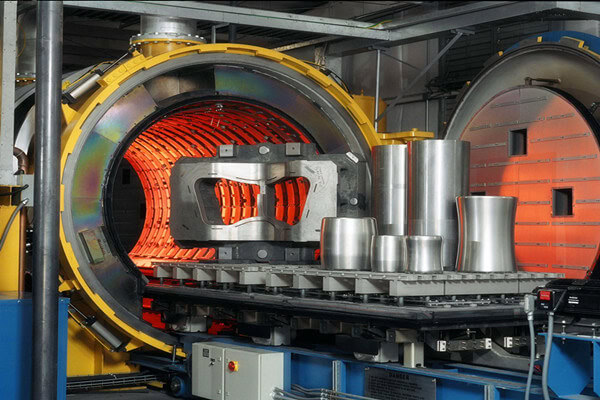
Normalizing is the process of heating the titanium flange to an appropriate temperature above the phase transition point, keeping it warm and then cooling it in the air. Normalizing can refine the grains, improve the strength and hardness of the material, and improve its comprehensive mechanical properties.
Quenching is the process of heating the titanium flange to a high temperature above the phase transition point, keeping it warm and then cooling it rapidly. Quenching can enable the titanium alloy to obtain a high-strength organizational structure such as martensite, significantly improving the strength and hardness of the material.
Titanium Flange Application
The reliability of the connection components plays a vital role in the performance and safety of the entire system. As a high-performance connection element, titanium flanges have been widely used in many industries due to their excellent corrosion resistance, high strength and good biocompatibility. Whether in extreme chemical environments or in the aerospace field with extremely high material performance requirements, titanium flanges have shown irreplaceable advantages.
In the chemical production process, there are a large number of corrosive media, such as various acids, alkalis, salt solutions, and high-temperature and high-pressure oil and gas. Titanium flanges are widely used in the connection parts of pipeline systems, reactors, towers, heat exchangers and other equipment in the links of petroleum refining, chemical raw material production, and fine chemicals. Its excellent corrosion resistance can effectively resist the erosion of these corrosive media. The high strength characteristics enable it to withstand the high pressure and high temperature environment in petrochemical production, ensuring the reliability and safety of the connection.
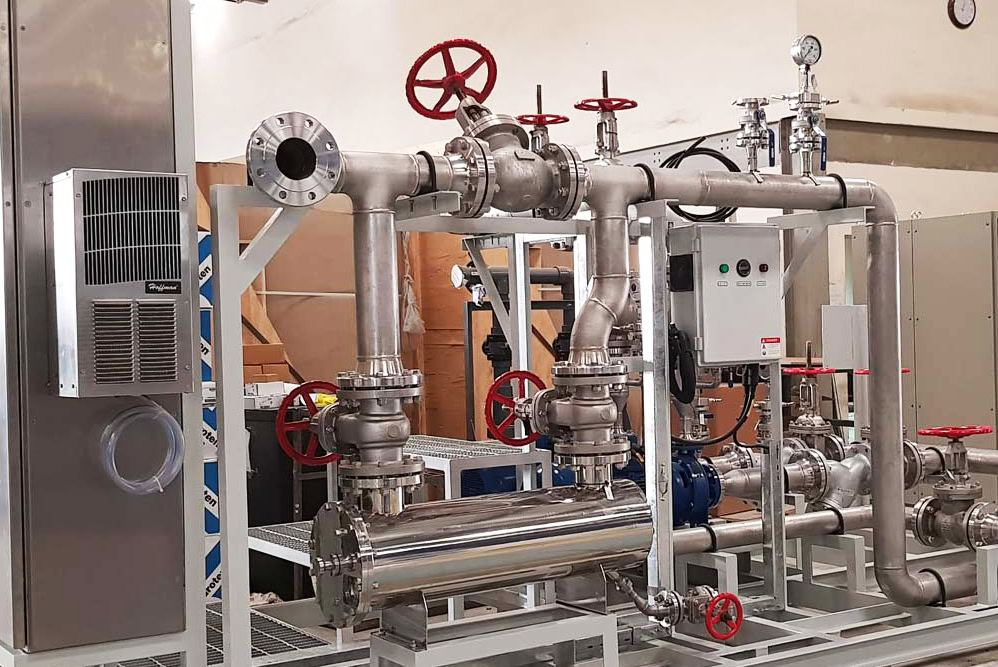
The ocean has the characteristics of high salinity, humidity, and strong corrosion, and the requirements for equipment materials are extremely harsh. Titanium flanges play an important role in marine engineering facilities such as seawater desalination equipment, offshore platforms, submarine pipelines, and marine monitoring instruments. Good seawater corrosion resistance enables titanium flanges to be used for a long time in the marine environment. For example, in the pipeline system of a seawater desalination plant, titanium flanges can effectively resist the corrosion of seawater and ensure the continuity and stability of fresh water production.

Aerospace
The high strength-to-weight ratio of titanium flanges makes them an ideal choice for the aerospace field. They can not only meet the structural strength requirements of aircraft, but also effectively reduce weight and improve the performance and fuel efficiency of aircraft. In high temperature environments, titanium alloys can maintain good mechanical properties to ensure the normal operation of key components such as engines. Titanium flanges are widely used in aircraft engine pipelines, hydraulic system pipelines, aircraft structural parts connections and other parts.

Medical has extremely high requirements for hygiene and corrosion resistance. Titanium flanges are mainly used for pipeline connections of pharmaceutical production equipment, such as drug delivery pipelines, reactor connection pipelines, pharmaceutical water systems, etc. The biocompatibility of titanium prevents it from having any adverse effects on the quality of drugs, ensuring the safety and purity of drugs. Excellent corrosion resistance can resist corrosion from various chemical reagents and detergents in the pharmaceutical production process. For example, in the sterile drug production workshop of pharmaceutical companies, titanium flanges can be used to connect the pipelines of drug filling equipment to ensure a sterile environment for drugs during production and delivery.

Power generation
In some special power generation methods and environments, there are high requirements for the corrosion resistance, high temperature resistance and high strength performance of equipment materials. Titanium flanges can be used to connect the piping systems, heat exchangers, condensers and other equipment in these power stations. In nuclear power plants, titanium flanges can resist the corrosion of radioactive substances and high-temperature and high-pressure water, ensuring the safe and stable operation of the nuclear reactor cooling system. In waste incineration power plants, titanium flanges can resist the erosion of acidic gases and high-temperature flue gases generated during the incineration process.

Food
The food processing industry has strict requirements on the hygiene and corrosion resistance of equipment. Titanium flanges are often used for pipeline connections of food production equipment, such as beverage production lines, dairy processing equipment, edible oil production equipment, etc. Titanium’s non-toxic, odorless and good biocompatibility characteristics make it fully meet food hygiene standards and will not have any impact on food quality and safety. For example, on a beverage production line, titanium flanges can be used to connect pipelines that transport beverages to ensure the hygiene and safety of beverages during production and transportation.
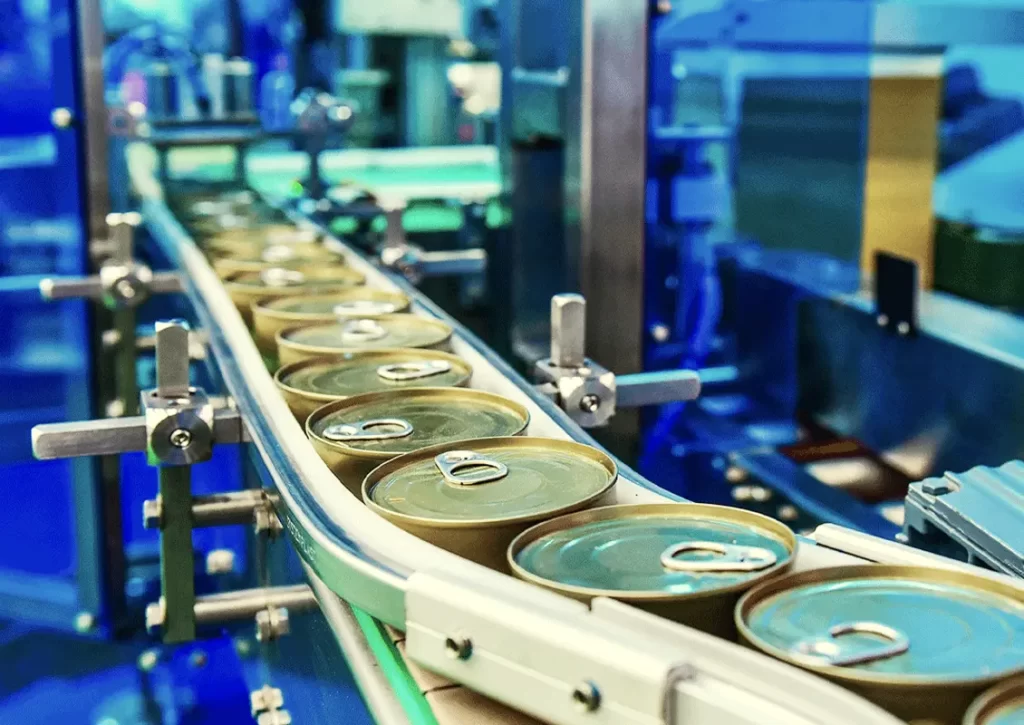
Wstitanium uses rigorous manufacturing technology, including raw material preparation, forging or casting, CNC machining, heat treatment and surface treatment, combined with strict quality inspection methods such as appearance inspection, size inspection, chemical composition analysis, mechanical properties testing, non-destructive testing and pressure testing, and follows relevant international standards to ensure the manufacture of high-quality and reliable titanium flanges.
